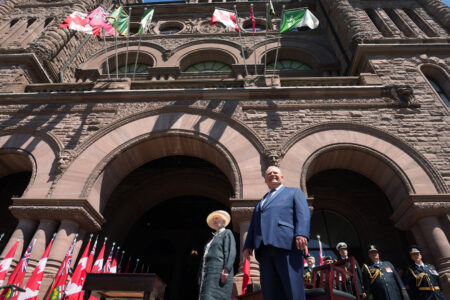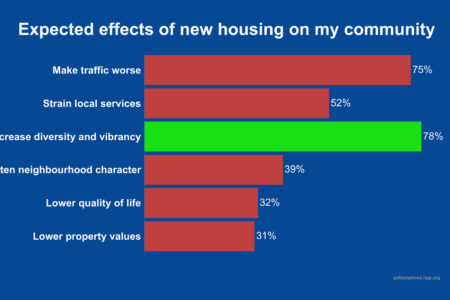
(Version française disponible ici)
This article is the second of a two-part series on the power of notwithstanding clause in the Canadian Constitution. The first part can be found here.
In the previous article, we examined the legitimacy of the notwithstanding clause. We now turn to the question of whether the notwithstanding power is compatible with federalism, constitutionalism and constitutional democracy.
Respect for the main principles of the state
Federalism presupposes or postulates respect for a country’s intrinsic diversity and, compared to other more-centralized state models, allows for a more flexible organization of powers within the state. This flexibility makes it possible for federalism to adapt to the different socio-political and socio-demographic contexts to which it is exposed. The notwithstanding power is part of this dynamic, because it allows a federated entity (a province such as Quebec, for example) to make collective choices that differ from those of its federative partners (i.e., the other provinces, the federal order of government, etc.)
As for constitutionalism, it assumes the superiority or predominance of the constitutional order in a state. In Canada, the notwithstanding power is part of the constitutional framework itself. It is intended to ensure greater respect for the separation of executive, legislative and judicial powers. Indeed, this balance of powers is one of the foundations of representative democracies, and distinguishes them from despotic or dictatorial regimes, which practise a high concentration of power and are at the opposite end of the political spectrum.
This balance is at the heart of constitutionalism, or at least essential to it. Contrary to what some have argued, the notwithstanding power does not undermine the Canadian Charter of Rights and Freedoms. Rather, It is part of it. It is intended to ensure that collective interests are fairly taken into account, which is particularly necessary in a context where, as in Canada, both the legal and cultural traditions reflect a deep attachment to individual rights and freedoms.
As for constitutional democracy, it is somewhat different from democracy itself. While constitutional democracy is essentially based on the will of the majority of the population in a given political situation or unit, constitutional democracy is much more complex. It involves the interaction of the legislative, executive and judicial branches of government in the pursuit of two objectives – one being the implementation of what might be called the “collective will” and the other being the protection of minority groups. The legislature, the government and the courts each have a role to play in achieving these two objectives. Constitutional democracy thus involves both respect for the majority will of the community and respect for the rights of minorities, particularly their constitutional rights.
In other words, constitutional democracy is a democracy in which the rights of individuals and minorities are blended with the will of the majority so that the majority cannot jeopardize these rights. It does not, however, prevent the state from making certain societal choices that are essential to its own preservation.
A delicate balance
In the case of Quebec, the great challenge is to reconcile the expression of its national dimension and its particular identity with respect for the constitutional rights of the individuals and minority groups that make up the province. This challenge can be met only to the extent that in certain cases Quebec can make fundamental identity choices – choices it deems essential to the affirmation of its specificity vis-à-vis its federative partners. This is precisely what the power of derogation allows.
In this vein, over the years, a true Quebec theory of the notwithstanding power has developed. Quebec uses this power to achieve various societal and identity objectives, and even purely state and institutional objectives that its federative partners do not consider advantageous to pursue.
There are a number of reasons for this distinct Quebec practice of using the notwithstanding power. One reason is the difficulty of amending the Canadian Constitution. Indeed, the constitutional amendment procedure set out in Part V of the Constitution Act, 1982 is so difficult to implement – as evidenced by the unfortunate outcome of all the negotiations undertaken in the past 40 years – that the federative partners, including Quebec, try to circumvent it whenever possible.
While some may argue that the use of the notwithstanding power is a constitutional amendment in itself, this is not technically true. Moreover, how can the federative partners be blamed for using Section 33 of the Charter to achieve objectives that are virtually unattainable through formal constitutional amendment?
The reasonable limit on individual rights and freedoms
Another reason for the use of the notwithstanding power relates to the state’s consideration of collective interests and rights, and the collective choices it makes. The justification clause in Section 1 of the Charter allows the rights and freedoms set out therein to be restricted by “such reasonable limits prescribed by law as can be demonstrably justified in a free and democratic society.” While it does permit and encourage the consideration of collective interests, it has been interpreted rather narrowly by the courts to date.
The notwithstanding power in Section 33 of the Charter provides some balance. The reality is that we would not be where we are today if the courts were not so resolutely committed to a unifying interpretation of the Charter. Nor would we be where we are today if they were more sensitive to collective interests and the specificity of Quebec in their judgments, and if they did not apply such a stringent and demanding test for justification under Section 1 of the Charter.
Of course, we are aware that there is a distinction between collective rights on the one hand and collective interests on the other. Indeed, collective interests are not always based on formal or established rights as such. It would be wrong, however, to think that the only collective rights that exist are those recognized in a country’s constitution or in the rest of its positive law. In fact, there are collective rights that are inherent to the existence of any political unit, especially when it is a nation, as is the case for Quebec.
Robust public debate needed on use of notwithstanding clause
There are also collective rights that derive from political recognition, if not from legal or judicial recognition. However, an overriding power allows a specific community to prioritize collective interests, to enhance collective rights or quite simply to make particular collective choices. By “collective choices,” we mean the fact that a state chooses a given social or economic model or seeks to achieve specific identity objectives.
Moreover, we must remember Quebec’s non-adherence to the patriation of the Constitution. In this context, the notwithstanding power remains one of the only means available to Quebec to oppose the excessively rigid and integrating constitutional framework imposed on it in 1982.
Finally, the notwithstanding power in Section 33 of the Charter serves the cause of Canadian unity, in particular by allowing Quebec to assert its originality within the Canadian federal system, a system that unfortunately sometimes tends to crush its intrinsic diversity in favour of a national construction (nation-building) that tends to level everything in its path.
This article is the second of a two-part series on the power of override. The first part can be found here.







